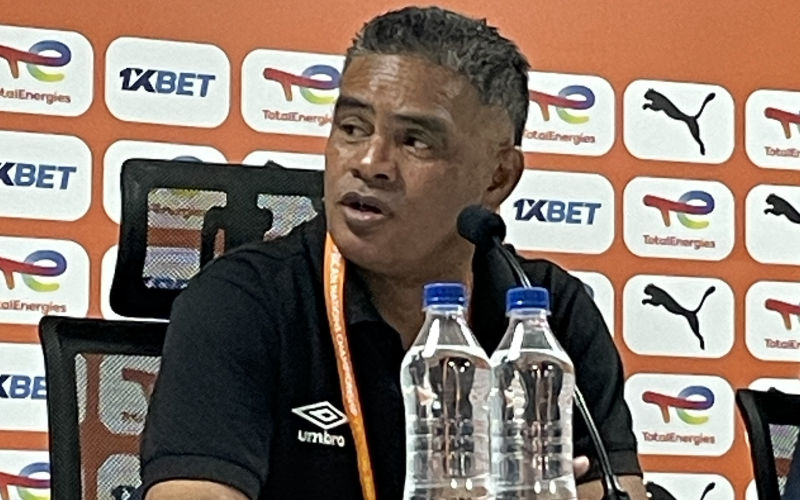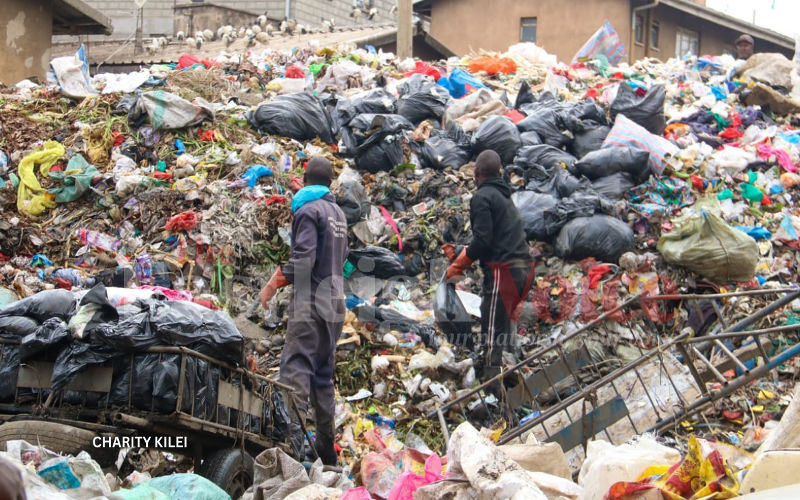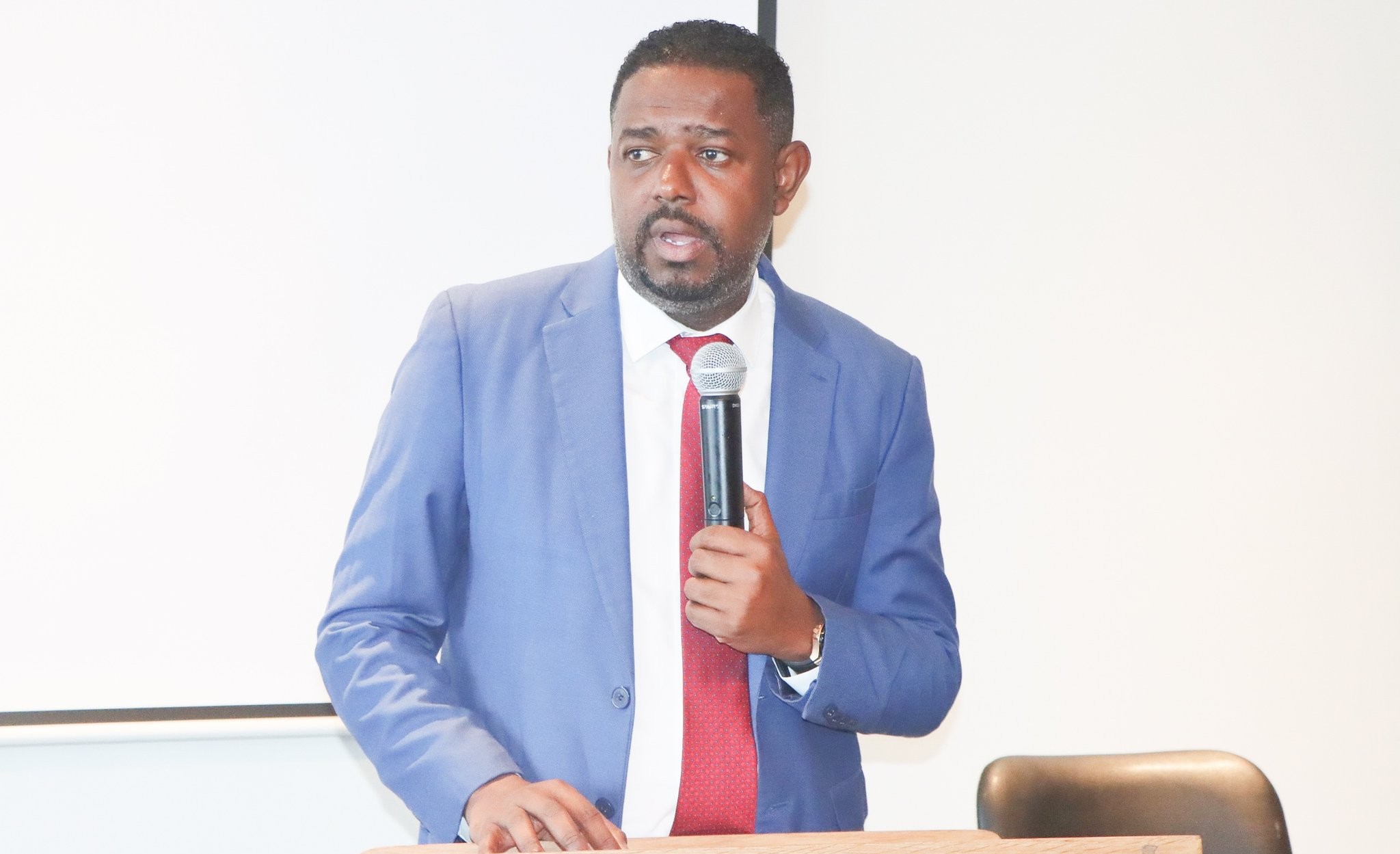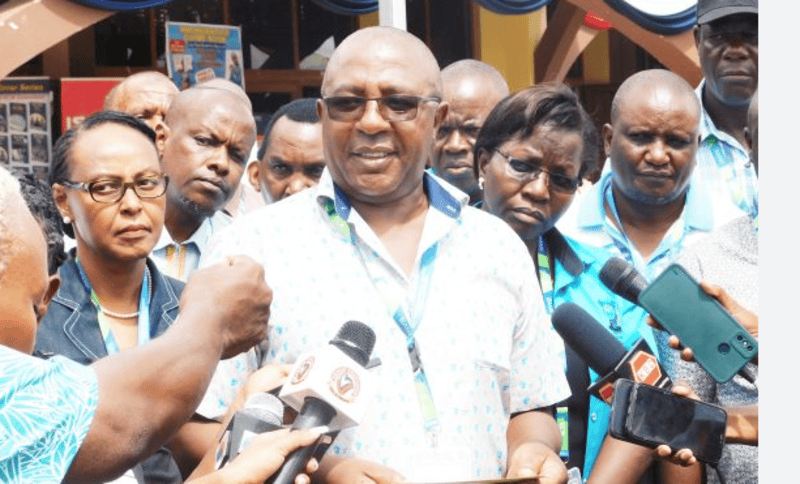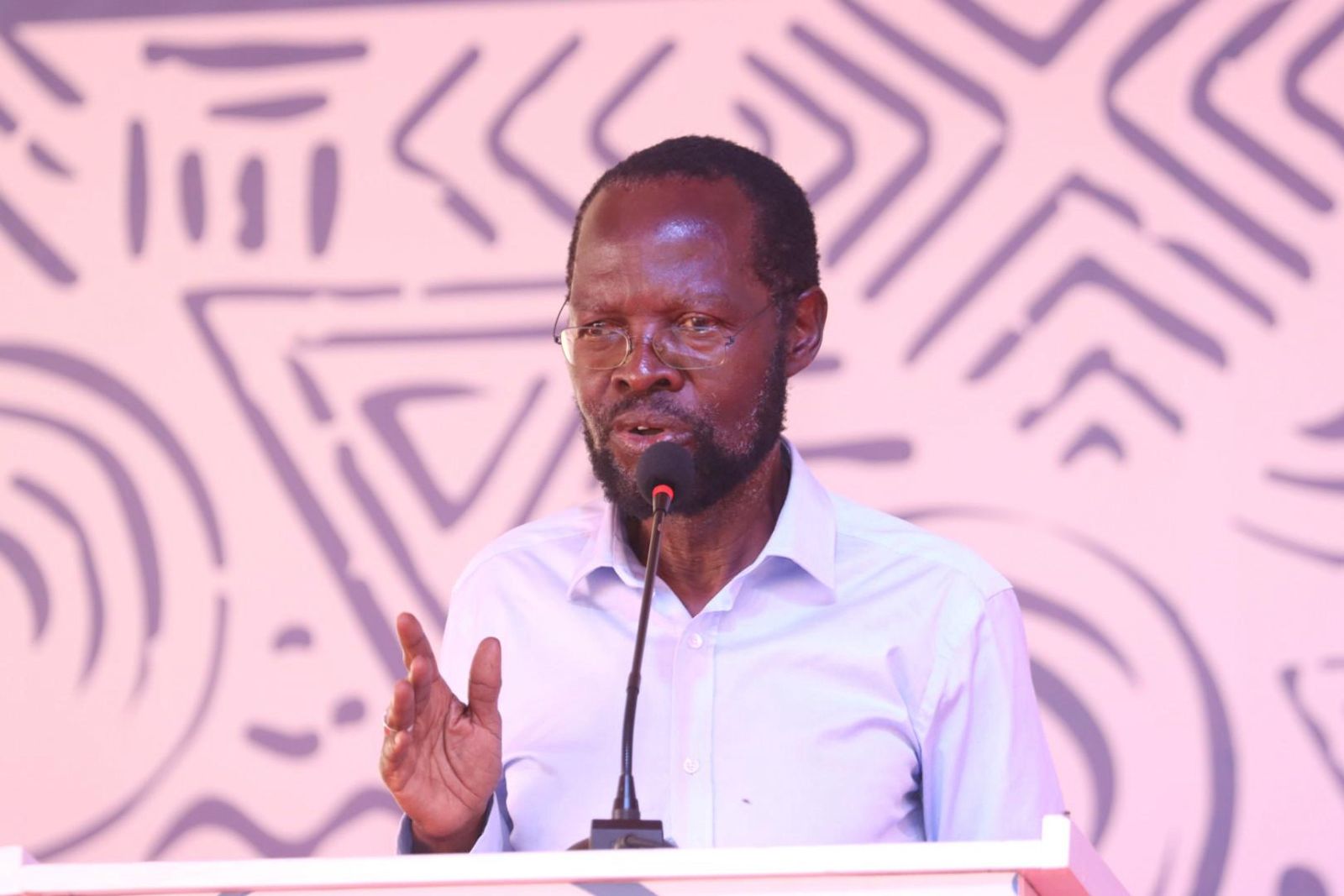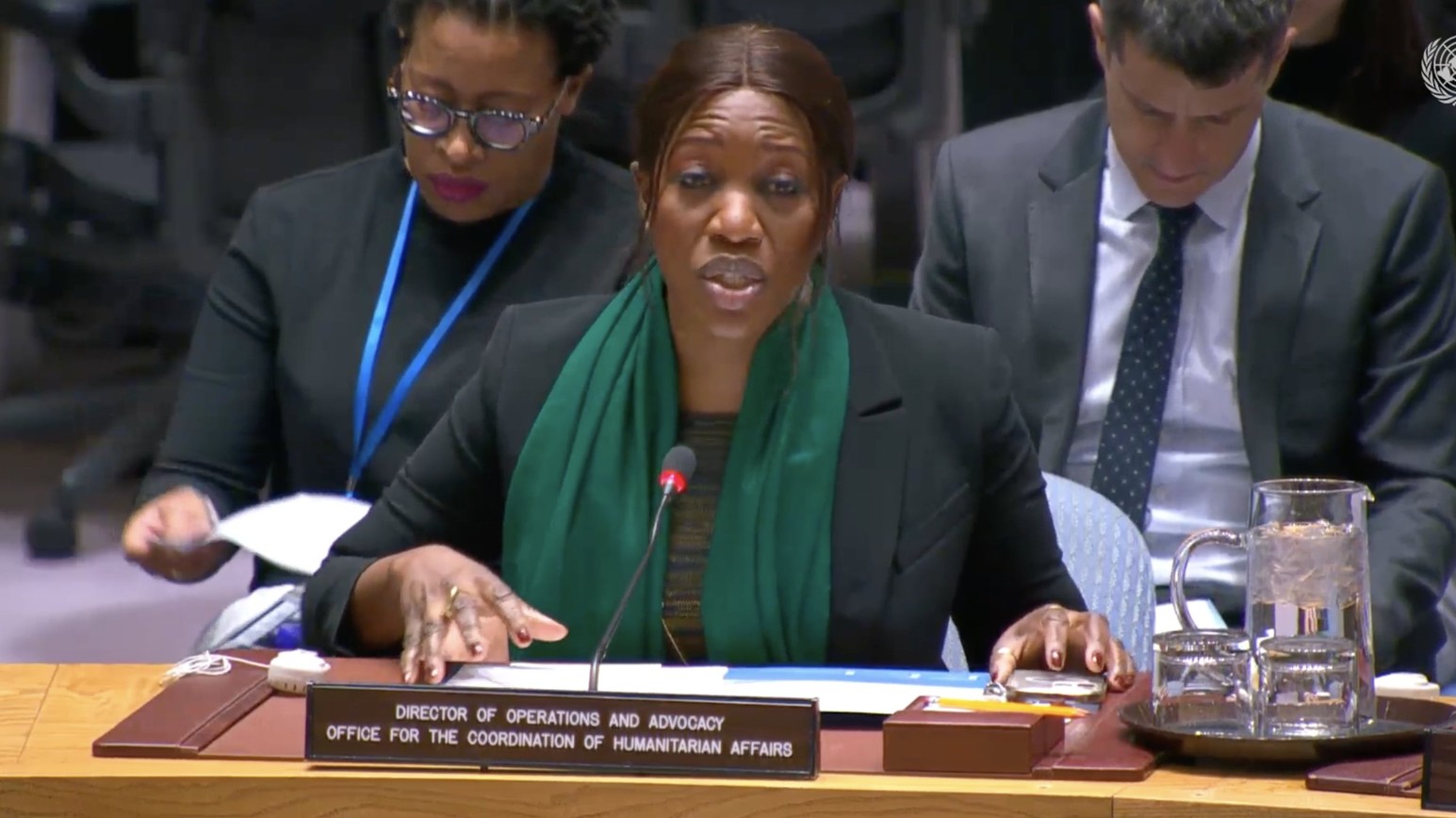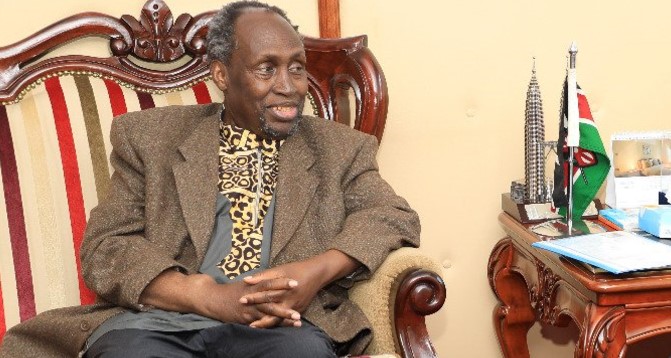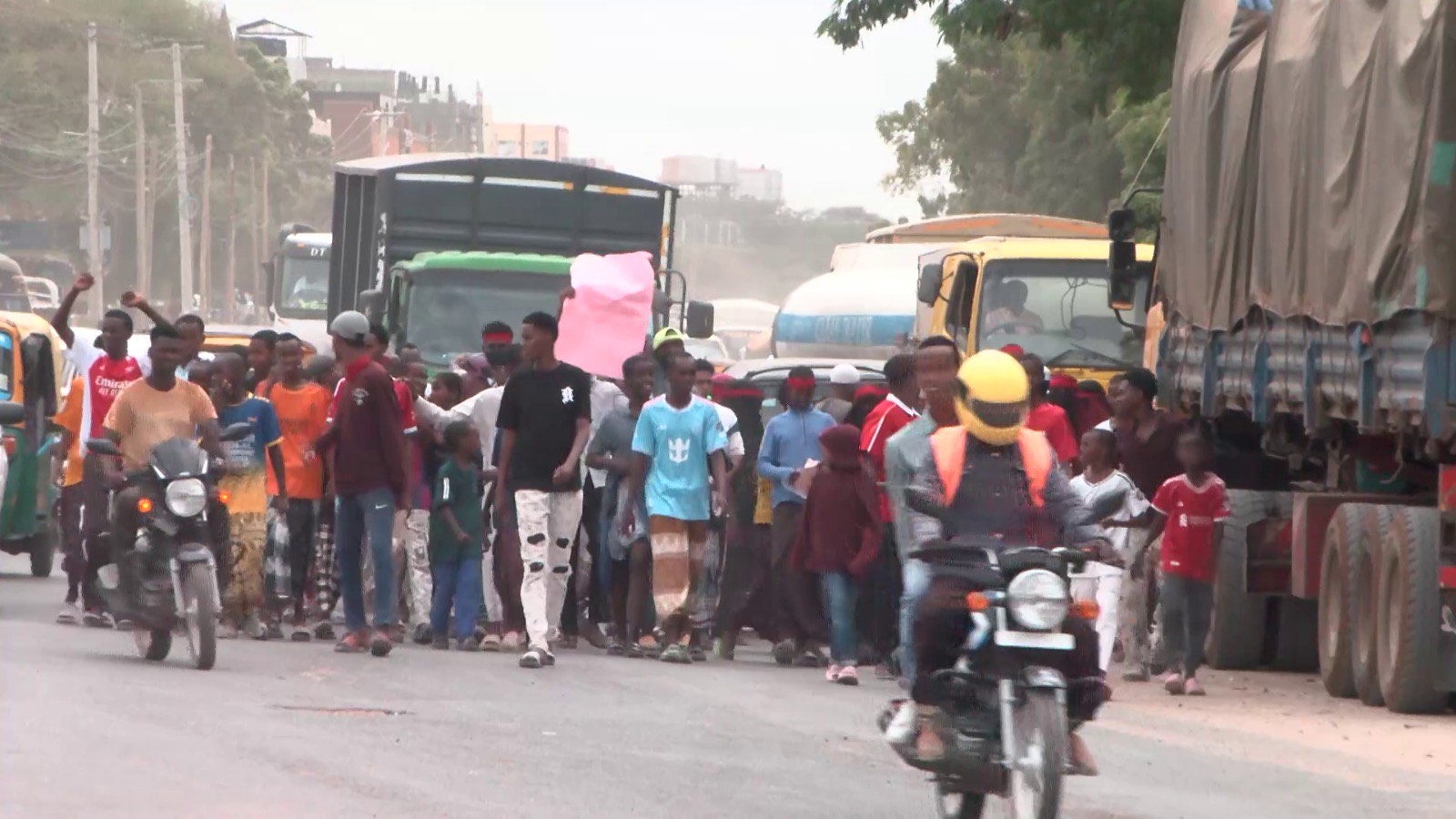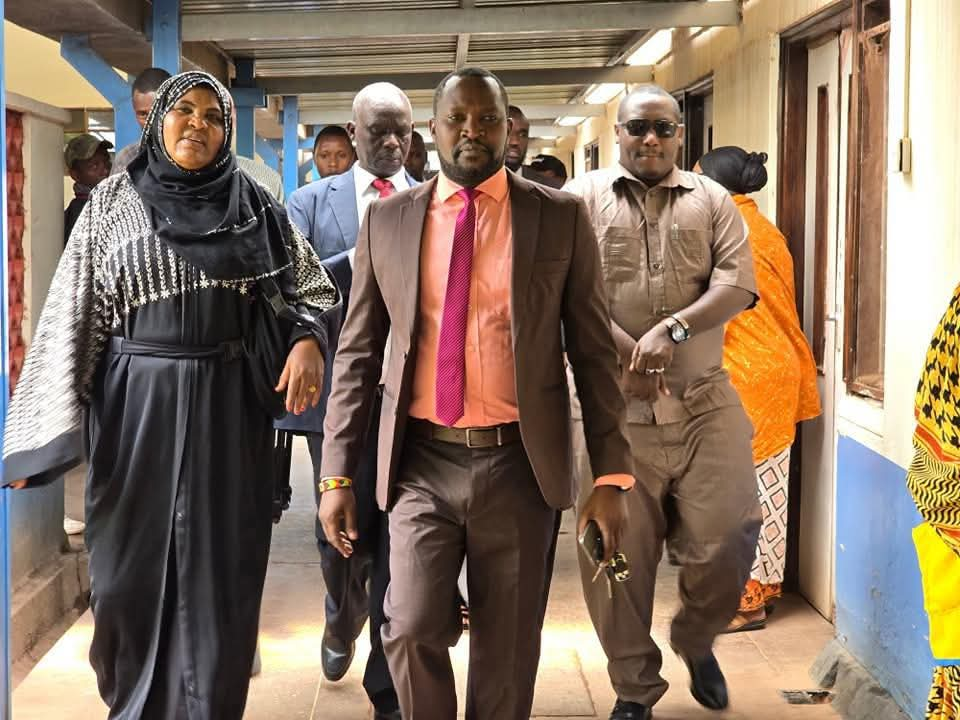Ugandan activist Atuhaire says Tanzanian officers overdosed her on painkillers after brutal detention

Atuhaire revealed that the officers stripped her naked and even inserted unknown substances into her body.
Ugandan journalist and activist Agather Atuhaire revealed that during her detention, Tanzanian authorities gave her excessive painkillers, seemingly to cope with the severe injuries she had suffered.
On Monday, Atuhaire and activist Boniface Mwangi spoke to journalists about the traumatic experiences they endured during a recent trip to Dar es Salaam, where they had gone to support opposition leader Tundu Lissu at his court hearing.
More To Read
- Tundu Lissu on death of Ngugi wa Thiong'o: A prisoner's eulogy from Ukonga prison in Dar es Salaam
- Tanzania introduces new passenger tax for international travellers flying to and from the country
- How Tanzania’s ex-envoy is turning into President Samia’s firebrand critic
- 99 new buses cleared as Dar es Salaam's second BRT phase set to be launched
- Zanzibar announces general election schedule; early voting to begin October 28
- Tanzania's Chadema slams closed-door trial as court bars live broadcasts of Tundu Lissu case
The two were held incommunicado for several days before eventually resurfacing at border points where Mwangi was dumped at the Horohoro border with Kenya, and Atuhaire at the Mutukula border with Uganda.
Atuhaire revealed that the officers stripped her naked and even inserted unknown substances into her body.
“They removed all my clothes and left me in my underwear. They beat me. Then I was taken to a clinic and they inserted stuff into me,” she said, adding that she was forced to lie flat and was injected and inserted with unknown substances “down there.”
“I had no strength left to resist,” she said, visibly shaken.
Pain medication
She explained that officers appeared alarmed by the extent of her injuries and began giving her pain medication constantly.
“They kept checking on me. I think they started to panic that I might not leave in a physically stable condition. They had to make sure I walked out looking like a human being,” she said.
“They kept giving me painkillers. They almost overdosed me,” Atuhaire added, explaining that she later came across a medical note indicating the prescribed dosage was “one times two,” yet she was given the drugs up to four times a day.
She clarified that the perpetrators did not use their sexual organs, which, despite the violence, she described as a small relief.
“At least I wouldn’t have to deal with HIV or other diseases. But the scars, both emotional and physical, remained,” she said.
Unable to walk
She, however, revealed that she could not walk for three days after the ordeal.
“I couldn’t walk for three days. I couldn’t step down. The feet were so swollen, have you ever felt your skin become so tight that you think if you stepped on something, it would prick or burst? That’s how the soles of my feet felt.”
Atuhaire said she eventually stopped eating as a form of resistance and survival.
“I started refusing food. I’d put it down and step on it. I was afraid it was part of their scheme,” she said.
She decried that her arrest came as a shock, particularly because she had committed no crime.
"It was strange that the day I had dreaded all my life, which I always thought would come in Uganda, came in Tanzania, where I hadn't even participated in a street protest," she said.
She revealed that she and Mwangi were taken from their hotel by state officers, with staff at the hotel cooperating fully with the operation.
Lawyers dismissed
After being held at an immigration office for about four hours and then at a police station for another hour, their lawyers were dismissed and informed that the pair would be held overnight.
"After five hours, no one had told us what charges we were facing. The questions shifted from Boniface's gadgets to why we were in Tanzania. But going to Tanzania is not a crime. My passport was stamped legally," she said.
Atuhaire described how her questioning turned into harassment, saying, "They went through my passport and were angered by the number of visas I had. They started accusing me of being funded by whites to destabilise the country. One even said, 'Where do you activists get all this money? I should become an activist too if it gives this kind of life," she recounted.
Bombarded with questions
The journalist said the interrogators, whom she said included at least seven people at the immigration office, bombarded her with questions unrelated to her presence in the country.
“They asked whether I had children. I asked, what does that have to do with anything?” she said.
Atuhaire said that what unfolded later was unimaginable.
“When they blindfolded me, I almost had a panic attack. I had always thought that if I were ever captured, I would carry poison to avoid going through torture. But in that moment, I realised I had to surrender to whatever would happen,” she said.
State impunity
Atuhaire decried that the entire experience revealed a chilling level of state-sanctioned impunity.
“In Uganda, at least they abduct you secretly, and officials deny knowledge. But in Tanzania, public officers openly handed us over to thugs, showing no fear of accountability,” she said.
She pointed a finger at the Tanzanian official she identified as Faustin Mafia, who, she said, "called thugs to take us from police custody."
She condemned the complicity of both Tanzanian and Ugandan authorities.
“My government didn’t even pretend to care. For them, it was good riddance, someone else was getting rid of a headache,” she said.
Atuhaire also criticised East African leadership, accusing it of failing its citizens.
“We have no institutions. No police that protects citizens. No government. Just ourselves,” she said.
She, however, praised the role of ordinary East Africans and the protests that pressured for their release.
“You saved us. You, without offices, without money, without guns. The noise you made made them panic. We were not invisible like the Tanzanians they abduct, torture and kill quietly,” she said.
Accountability
She pleaded for justice, stating that the only thing she wanted was accountability for the suffering she endured. She also challenged Tanzania’s long-held image as a peaceful nation, saying that illusion had collapsed.
“I’ve been asked what I need. The only thing I want is justice. Maybe the pain we went through was so the world could know what ordinary Tanzanians go through. Maybe we had to suffer so that this impunity can be checked—so that no East African has to go through this again.”
“Tanzania has hidden behind a facade of peace for so long. But the mask is off. What’s left is whether those with power will act. If they don’t, it confirms what we already know—our governments are partners in tyranny.”
Top Stories Today
